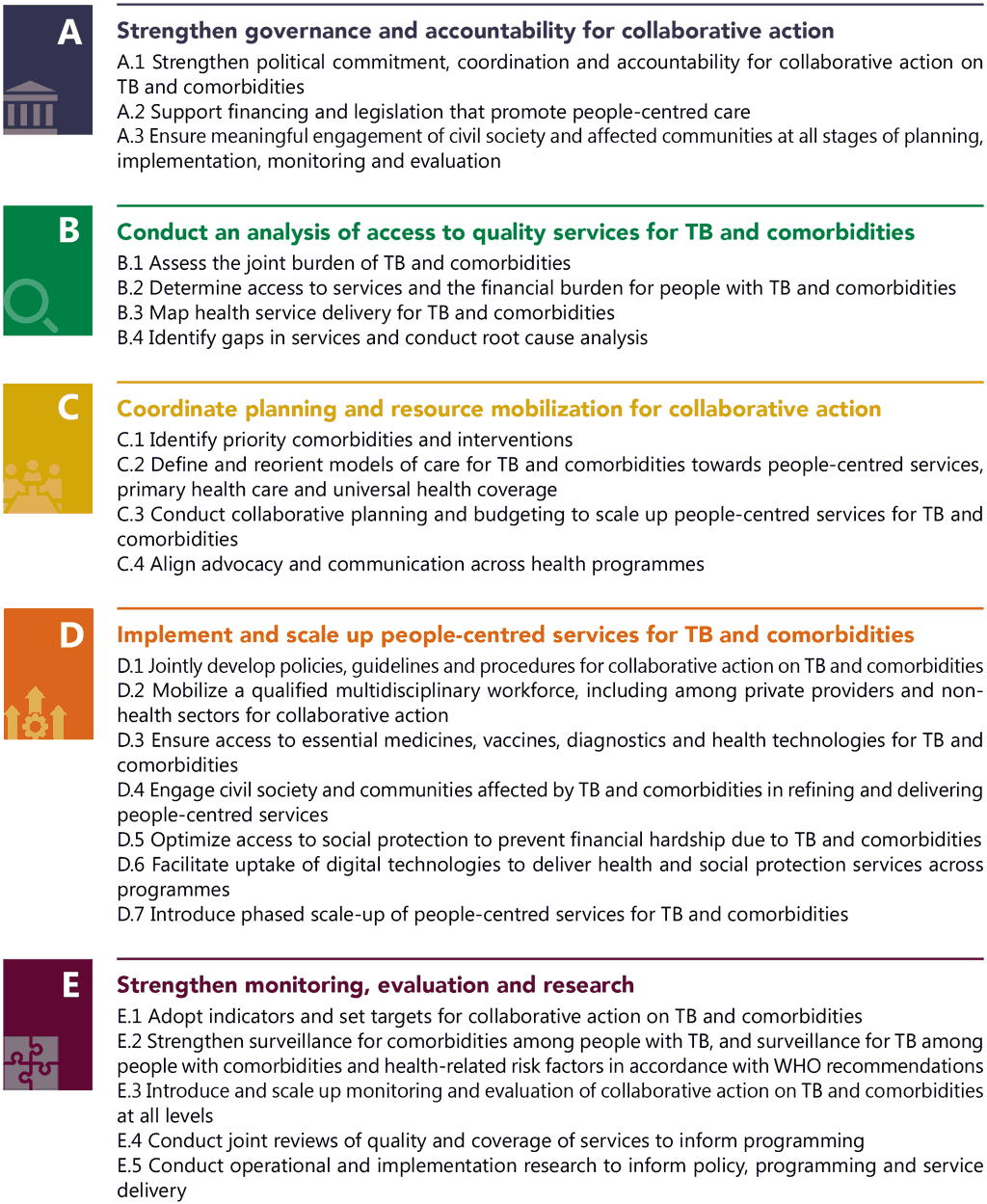Liens transversaux de livre pour 1266
To support countries in introducing and scaling up collaborative action on TB and comorbidities, including diabetes, WHO has developed the Framework for collaborative action on TB and comorbidities (referred to hereinafter as “the Framework”) (35). The Framework covers five areas that are central to delivering people-centred care for TB and comorbidities: (A) Strengthen governance and accountability for collaborative action; (B) Conduct an analysis of access to quality services for TB and comorbidities; (C) Coordinate planning and resource mobilization for collaborative action; (D) Implement and scale up people-centred services for TB and comorbidities; and (E) Strengthen monitoring, evaluation and research (Table 1).
Table 1. Summary of the framework for collaborative action on TB and comorbidities

Source: WHO (35)
The aim of the Framework is to improve access to people-centred services for TB and comorbidities and health-related risk factors, including for people living with diabetes. The key objective of the Framework is to establish and strengthen collaboration among health programmes and across sectors for delivering people-centred services for TB and comorbidities, including diabetes. The Framework provides a structure and suggested mechanisms for establishing and strengthening collaboration among disease programmes and relevant sectors outside the health system, to ensure the delivery of evidence-based, people-centred care for people with, or at risk of, TB and comorbidities.
The Framework has been adapted in this chapter and builds upon the activities to establish mechanisms for collaboration, outlined in the Collaborative framework for care and control of tuberculosis and diabetes (21), to include specific considerations for assuring human rights-based, people-centred services to address TB and diabetes. Depending on the context, people with diabetes and TB may also experience other comorbidities such as HIV, pulmonary disorders other than TB, undernutrition, viral hepatitis, mental health disorders, smoking and substance use disorders.
TB programmes and noncommunicable disease (NCD) programmes or departments responsible for addressing NCDs (hereafter referred to in this document as “NCD programmes”) are encouraged to work together and to collaborate with other programmes to jointly address TB and diabetes, as well as other comorbidities and risk factors, through a people-centred approach to high-quality, integrated care.

 Retour
Retour